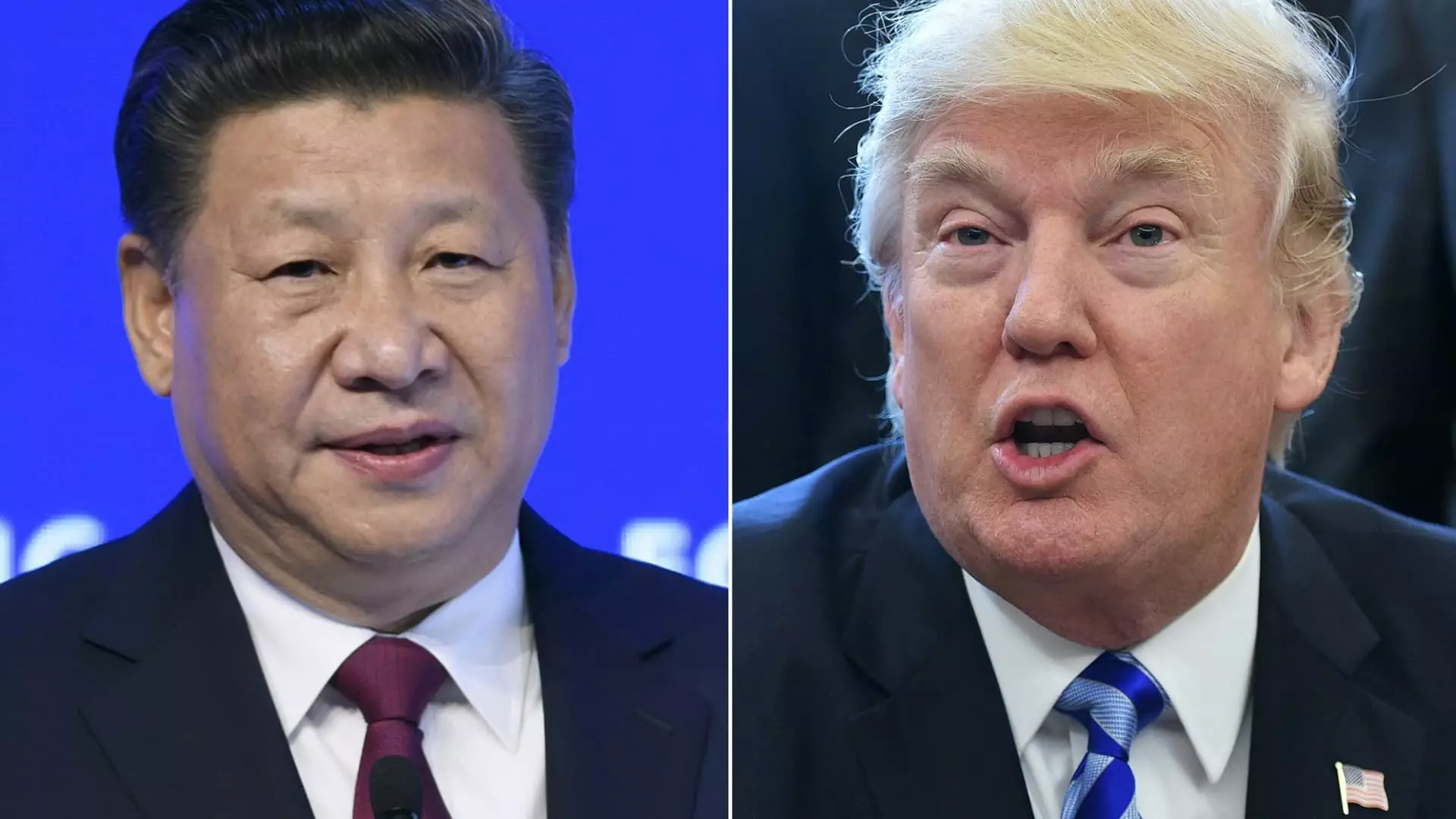The symphony of deceit that has unfolded in the realm of international commerce, particularly regarding U.S.-China trade relations, bears devastating consequences for American businesses and consumers alike. President Donald Trump’s claim that China has “totally violated” its preliminary trade agreement is a rebuttal wrapped in theatrics, meant to mask the reality of ineffective negotiations and faltering economic strategies. While some may cheer the rhetoric, we must peel back the layers of this chaotic trade tension to understand its implications—especially as they fall on the shoulders of everyday Americans.
Trump’s remarks on social media reveal more than just angst over China’s compliance; they showcase a man who thrives on framing every negotiation—successful or not—as a victory for his administration. Broadcasting grievances while falsely portraying himself as a stalwart defender of American interests can only inspire skepticism. As stock futures dipped following his rant, it is evident that unwarranted volatility reigns in financial markets, spurred by knee-jerk reactions rather than sound economic policies.
The Illusion of Stability
The notion that the U.S. has achieved a measure of control through tariffs is fundamentally flawed. Treasury Secretary Scott Bessent’s admission that “trade talks with China are a bit stalled” exposes the narrative that Trump wants to sell: that aggressive tariffs successfully coerced China into compliance. This narrative, akin to a mirage in the desert, evaporates under scrutiny. The claim that Trump’s “very high tariffs” saved China from economic turmoil is not just disingenuous; it’s a misrepresentation of the interdependencies between the world’s two largest economies.
Rather than stabilizing the situation, a series of unpredictable actions have left American businesses itching for clarity, while their counterparts in China navigate an economy burdened by the fallout from tariffs. Companies on both sides suffer from an environment of uncertainty, which leads only to stagnation. The reality that Trump characterizes as a “good news” story is hardly a win for either side; it’s a façade constructed out of half-truths and fragile optimism.
The Illogical Leap to Compliance
Trump alleges that China’s dancing around compliance is “completely unacceptable,” yet it raises the question of why such expectations were harbored in the first place. Did Trump truly believe that this contractual framework could be upheld after he wielded tariffs like a blade, customizing them at will without considering the long-term repercussions? Overly optimistic projections do not generate compliance. The emphasis on momentary victories overshadows the vital question of sustainability and cooperation—key elements in maintaining healthy economic relationships.
Jameison Greer, the Trade Representative, adds another layer of complexity with his remarks concerning China’s compliance. Labeling the slow movement of negotiations as unacceptable is somewhat hypocritical. When policies are steeped in volatility, compliance is not only difficult; it’s virtually impossible. This underlines the need for a stable and predictable policy framework that fosters trust and encourages mutual cooperation rather than engendering resentment.
The Reality of Political Posturing
In moments of crisis or contention, political leaders often leverage the circumstances to bolster their images, feeding into the narrative of being the stalwart defender of national interests. Trump’s social media posts, peppered with claims of having saved China from its own collapse, illustrate this very tactic. Such grandstanding serves to distract from ongoing issues, buying time with rhetorical flourishes rather than constructing meaningful solutions.
Moreover, characterizing the outcome as a success by hailing a “deal” that is frail demonstrates a profound misunderstanding of the nature of these interactions. The “TACO trade” idiom hints at a more troubling reality: that the market reacts not only to agreements but to the unpredictability that surrounds them, capitalizing on perceived weaknesses. Rather than showcasing strength, such behavior signals an erratic approach to governance—one that leaves markets perilously exposed to fluctuations and uncertainties.
In the grand theater of international trade, the real danger lies in the theatric performance overshadowing pragmatism. As the U.S. navigates these tumultuous waters, pinning hopes on rhetoric will not yield results; a return to sound, strategic negotiations that value cooperation over conflict is essential for long-term stability.


Leave a Reply